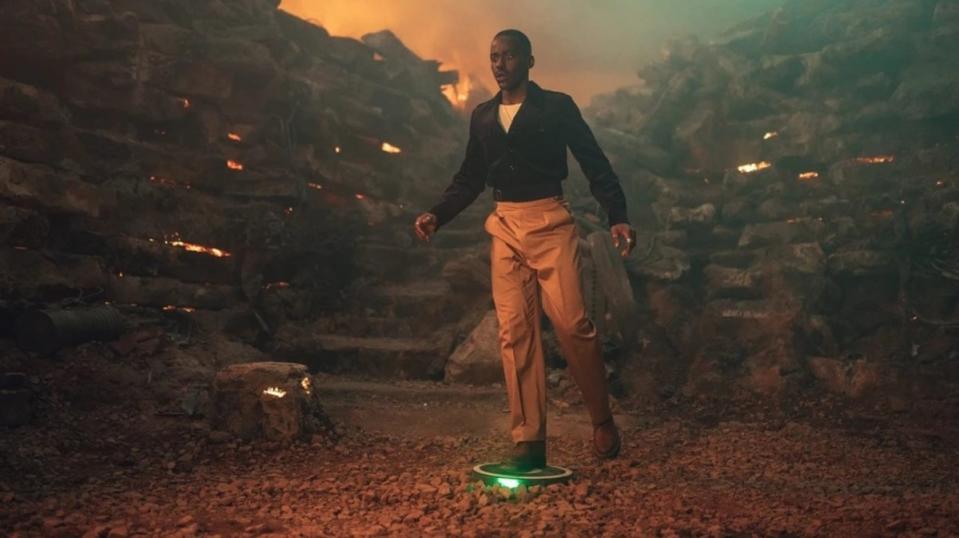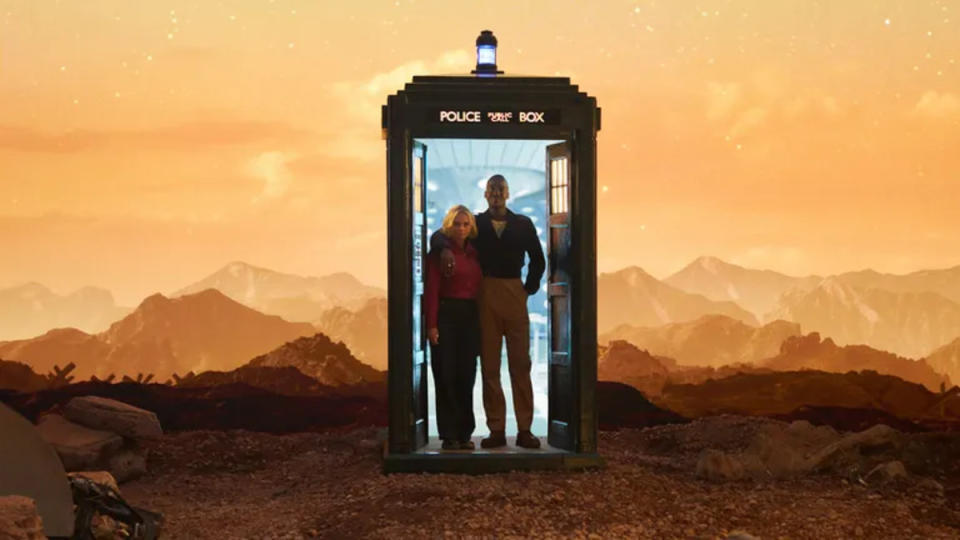Doctor Who: Boom Review
- Oops!Something went wrong.Please try again later.
- Oops!Something went wrong.Please try again later.
- Oops!Something went wrong.Please try again later.
It’s become a bit of a long-running joke in Doctor Who fandom that most of the show’s best episodes are written by Steven Moffat while Russell T Davies is showrunner. Episodes written under such circumstances include: The Empty Child, Girl in the Fireplace, Blink, and Silence in the Library, which are each considered all-time greats by the majority of fans – myself included.
So, it’s safe to say that the hype was big when it was revealed that Moffat would be writing an episode for this new season – which is being run by Davies – to the point where there was a risk of being overhyped about just how good Boom would be. As it turned out, we never needed to worry, as Boom is yet another addition to that prestigious list of top-tier Doctor Who episodes.
It does something that Who rarely manages: focus entirely on one idea, and spend 50 minutes exploring it. As far as a plot synopsis goes, it’s very simple. The Doctor steps on a landmine, and the whole episode is about working out how to get off it without exploding. Almost the entire thing is set in one featureless ditch on a war-torn planet, and yet it is filled with tension, action, and surprises from start to finish.

BBC
The world of Kastari 3 is one of Moffat’s best, even though we barely see more than that one ditch. The idea of an enemy lurking in the mud or the fog makes for some great background tension as the Doctor tries to get himself out of trouble. The episode immediately makes sure we know how dangerous these unseen enemies are by showing us the compacted tube of flesh that was once a human being – a deliciously gruesome prop if there ever was one, I don’t envy Ncuti having to hold that thing for almost the entire episode.
The concept of this futuristic mine means there’s tension in every movement that the Doctor makes and every word he says, as the mine will only explode when its algorithm is sure there’s a living being on top of it. Whenever anything happens around him you immediately tighten up knowing that any spike in adrenaline or emotion from the Doctor could end it in an instant.
Of course, that means Ruby has to seemingly die right in front of him. This is where the episode pulls its best trick, and it pulls it more than once. Logically, everyone watching knows there is no way Ruby or the Doctor is going to die at all, let alone in episode three of the series. However, this episode doesn’t need you to believe that could happen, it just needs to catch you off guard with a split second of doubt – just enough to get your heart racing.

BBC
That’s what Ruby getting shot manages. The shooter comes out of the fog so suddenly that you don’t see it until a shot’s already been fired, and it almost makes you jump to get that emotional reaction out of you. So sure, we all know Ruby will be fine by the end, but in that moment it pushes everything into a higher gear as now the Doctor has two pressing situations to deal with while completely unable to move or emote in any major way.
Here’s where the episode’s secondary characters really shine – except for the kid, who barely seems to even notice what’s going on around her, I can’t help but feel she could’ve been given a lot better direction here. Still, the two Anglican Marines do their jobs perfectly, at first being hindrances to the plot, but slowly coming around to become really likable characters that are clearly out of their depth, yet dealing with it as best they can.
They also help us to explore one of the big themes of the episode, which is the issues faith can cause. Back when Moffat introduced this religious military back in 2010, he always glossed over the implications of it, but here we finally get to interrogate what a fully militarised religion can look like. The Doctor openly condemns what they do, but is also careful not to lay the blame solely at their feet, as we interrogate the other major theme – corporate greed and reliance on algorithms.

BBC
I find it scary how believable the Villengard algorithm is. Something designed by a weapon’s manufacturer to ensure that a war’s casualties remain at just the right level to keep everyone buying their products. We don’t have the technology for something like that to exist yet, but I fully believe that as soon as we do, some CEO somewhere will try it.
Both of these themes combine to make a truly genius twist – there is no enemy. The Anglicans are fighting a war against no one on an empty planet, but their own technology is deliberately killing them because it’s good for business, and their faith is making them blind to the obvious fact staring them in the face.
The slow reveal of this is done to perfection, letting the audience work it out just before the Doctor explains it, and then we have to see these two deeply religious soldiers come to accept it, all while a ticking clock counts down to Ruby’s death and the Doctor’s explosion. Every second of it drips with tension, to the point where watching it is almost stressful, with not a single line of dialogue going amiss for the entire runtime.

BBC
The pacing is incredible too, knowing exactly when to put on the pressure and then let off for a bit to let us calm down. Every scene where the mine comes close to detonating is made all the stronger by how each one is followed by a breather. The Doctor’s still standing on the mine, of course, but we get to see him and Ruby have a laugh about the situation, or the two marines further their little love story for a few minutes. In an episode that is this stationary, yet so overwhelmingly tense, these brief moments of levity only serve to enhance the scenes that really push the characters to the brink.
In the end, you may find it cheesy that a father’s love was all that was needed to override this seemingly all-powerful algorithm, but it’s exactly the kind of cheesy optimism I want out of Doctor Who. It feels earned as well, the Doctor may not have been directly responsible for stopping it, but it was his speech that set those wheels in motion, and once again delivers a great message that the spark of humanity – however small – will always overcome AIs and algorithms somehow.
Episodes like Space Babies and The Devil’s Chord are great pieces of television that show me why I enjoy Doctor Who, but Boom is the kind of episode that reminds me why I believe this is the greatest TV show ever made. I would easily put it up in that upper echelon with the likes of Midnight and Heaven Sent as one of the greatest single episodes in show history, and writing about it has made me want to go and watch it yet again, so I think I will.

